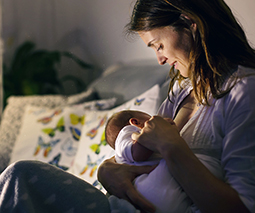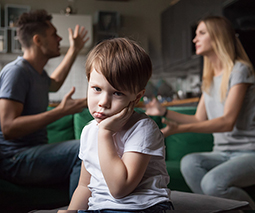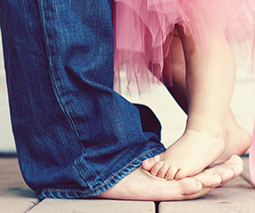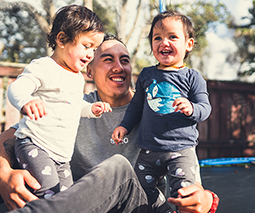How anger impacts those around you: “Sometimes you put fear into them”
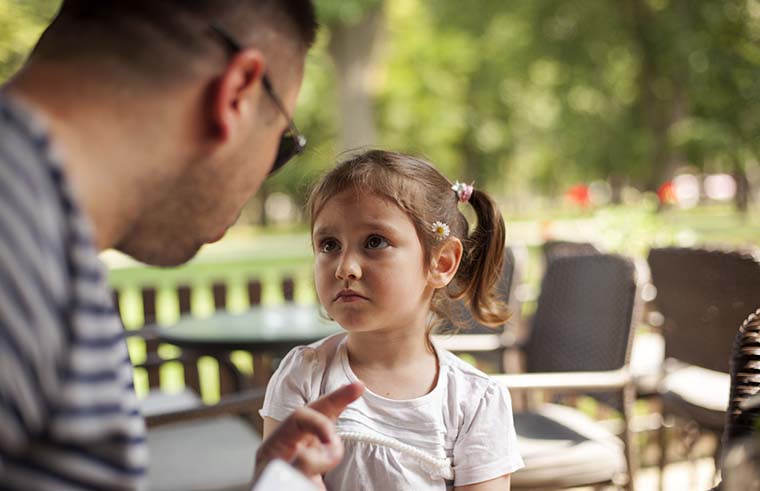
I can’t ever remember my parents yelling. I grew up in a reasonably quiet household. My husband, on the other hand, comes from a large Italian family. What I consider yelling, he considers normal conversation.
The way we were raised now plays into how we communicate in our own home. Especially how we express and experience our anger.
When my husband gets angry and yells – at the kids or a driver on the road – my whole body goes tense. One three minute explosion can reverberate in me for several hours. For him, it’s just venting. It’s in him, then out in the ether.
I find our different understanding of anger mystifying, which is why I was fascinated when I heard a podcast by Sam Loy from Human/Ordinary called The Daddy Bear where he talks to his wife and daughter about his own anger.
Anger can feel very normal to the person experiencing it
Sam says he spent the first part of his life unaware that the way he got angry was a problem. It felt normal and natural up until his early 20s.
“I was of the mind that every person was getting angry like this. This was normal. It wasn’t until I was talking to an ex-girlfriend who said, ‘you know you are one of the angriest people that I’ve ever met.’ And that was really confronting.”
Child development expert Karen Young, from the popular website Hey Sigmund, says that anger can become normalised if you have grown up around it.
“We tend to do what we’ve always known, at least until there’s a new awareness or a reason to do things differently. Even if people have a sense that anger isn’t working as a response, it can be difficult to change a way of responding that has developed over a lifetime.”

The impact of anger on those around you
After his ex-girlfriend dropped that truth bomb in his lap, Sam spent several years trying to understand and get a grip on his anger. But it wasn’t until he became a father that he realised the true impact his outbursts had on those around him.
“You have this child that you love absolutely unconditionally. Parenthood changes you irreversibly and you are never the same again. And so there’s this little person that you helped create and they’re afraid of you. Sometimes you put fear into them. I might react in a poor way to her behaviour and she’ll start crying for her mum. And that really gets to me because I’ve made her feel so uncomfortable with me, her parent who loves her dearly, that she wants my partner to be there instead of me.”
While the ways Sam exploded felt normal and natural, those around him absorbed his reactions in a completely different way. Karen says he could be triggering the fight or flight response, which is a healthy and normal reaction if it is only temporary.
Karen explains, “For anyone who is consistently exposed to anger, it can cause the stress response to stay switched on, which isn’t healthy mentally or physically.”
According to Karen, the effects of anger can last long after the initial outburst.
“Anger has a way of fuelling shame, and none of us wants to feel that. It might curb behaviour for a while, but by the time children start moving towards adolescence, they’re going to avoid coming to us when they mess up because they’re going to want to avoid the shame that comes with an angry spray. The problem with this is that we can’t influence them if they aren’t letting us know what’s happening.”
Anger is normal but there are different ways to express it
We all get angry. It’s a part of being human – like happiness, sadness or excitement.
But just like Tom Cruise jumping up and down on Oprah Winfrey’s couch in excitement disturbed many people around the world, the way you choose to express your anger can have a significant effect on the people you share your life with.
Karen outlines the simplest way to understand when anger is harmful, “Anger becomes unhealthy when it’s expressed in a way that hurts ourselves or other people. This might look physical (as in hitting, throwing things around), threatening (using aggression as a way to control others) or personal (saying things that hurt or shame).”
It’s possible to manage your anger
We all yell at our kids occasionally, that doesn’t make you a bad person. You might be a ‘yelly’ family, and it’s just part of your DNA. But if your explosions are constant and upsetting those you love, Karen has some tips on how you can manage the outbursts.
• Put space between you and whatever is making you angry.
• Practice deep breathing when you’re calm, so you can employ it when you’re in a fit of rage.
• Remember that anger never exists on its own – try to understand the other emotion it is masking (sadness, grief, jealousy, insecurity, anxiety).
For Sam, it’s been about getting some counselling and being committed to making some changes.
“It’s really about stepping outside of yourself; it’s like the matrix. You’ve got to look at it say, well there’s a glitch there and let’s do something about that.”
 Need some support to be the best parent you can be? Our Parent School parent coaching experts can help. Click to find out more or book a one-on-one session.
Need some support to be the best parent you can be? Our Parent School parent coaching experts can help. Click to find out more or book a one-on-one session.

